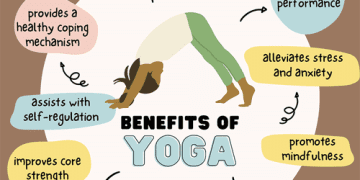
5 Ways to Handle Teenagers’ Mood Swings

M is for Mood Swings for #BlogchatterA2Z. Here are 5 Ways to Handle Teenagers’ Mood Swings. The adolescent years are like a rollercoaster. This makes it a rocky journey for both teens and parents alike. A common problem parents face during their teenage is dealing with mood swings. This is a frustrating and confusing time.
Understanding Teenage Mood Swings:
Teenagers undergo remarkable physical, emotional, and hormonal changes during adolescence. This leads to yo-yo moods and behaviours. Parents need to react with patience, maturity, and emotional intelligence.
Causes of Teenage Mood Swings:
1. Hormonal Changes: This yo-yo in estrogen and testosterone levels can imbalance neurotransmitters in the brain. This affects emotions and magnifies responses.
2. Brain Development: The growing teenage brain, particularly the prefrontal cortex, controls emotional regulation, and can lead to reckless behaviour and heightened emotions.
3. Peer and Social Pressures: The need to fit in and create an identity contributes to mood swings. This happens while teens are swimming through social dynamics and peer relations.
4. Academic Stress: Academic demands and high expectations can cause stress and anxiety. This affects their emotional well-being.
5. Family Relationships: Changes and fights within the family can influence a teen’s emotional stability.
Effects of Teenage Mood Swings:
1. Emotional Instability: Swift emotional changes lead to confusion, frustration, and feelings of isolation.
2. Strained relationships: Mood swings can strain relationships with family, friends, and romantic partners. This leads to misunderstandings and fights.
3. Academic Achievements: Mood swings can affect concentration and motivation, influencing academic success.
4. Mental Health: Extended bouts of mood swings may increase the chances of depression and anxiety.
5 Ways to Handle Teenagers’ Mood Swings
Effective Treatments for Teenage Mood Swings:
1. Psychotherapy: Cognitive-behavioural therapy (CBT) helps teens identify negative thought patterns and develop coping mechanisms.
2. Supportive Environment: Creating a non-judgmental environment at home and school boosts open communication.
3. Mindfulness and Relaxation Techniques: Practicing mindfulness and meditation can help to manage stress.
4. Healthy Lifestyle: Encouraging exercise, a balanced diet, and sufficient sleep endorses emotional well-being.
5. Medication: In severe cases, medication can help to stabilize mood and ease symptoms.
Teenagers often experience mood swings because of hormones, brain development, and external pressures. Parents can support their teens through this difficult phase by understanding the causes and effects of mood swings. By using effective treatments, and nurturing emotional toughness and well-being. Seeking help from a mental health professional can offer additional guidance and support.
This post is part of Blogchatter’s CauseAChatter
I am participating in #BlogchatterA2Z
- A- Anxiety Disorders
- B-Bullying-A growing concern for Adolescents
- C- 10 Ways to Cope with Stress for Adolescents
- D-Supporting Adolescents with Depression
- E-Eating Disorders in Adolescents in India
- F- Role of Family in Adolescent Mental Health
- G- Supporting Adolescents in Gender identity
- H-Harmful Substance Abuse in Adolescents
- I- Helping Adolescents Navigate Identity Confusion
- J- Mental Health in Juvenile Offenders
- K-Key To a Better Future for Adolescents
- L-LGBTQ+ Adolescents Issues










You have touched very important topic. Parents of teenagers are always so confused about how to handle the mood swings.
All i’ll say is, I don’t miss being a teenager. No sir! Thankfully, my parents were pretty understanding of these issues and didn’t mind certain behaviours resulting from the hormonal changes i was going through. Sadly most parents, especially Asian parents are obtuse and forget they once trapezed the same jungle gym! Thank you for this!